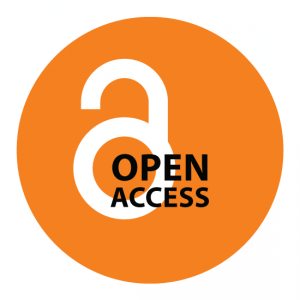
In a move to expand public access to academic research on education issues, doctoral students at the Stanford Graduate School of Education have voted in favor of an open access policy to make their scholarly articles available for free to scholars, educators, policymakers and the public worldwide.
“By voting overwhelmingly in favor of open access, GSE students are sending a clear message that the closed model of scholarly communications will need to change as they enter the professoriate,” said Juan Pablo Alperin, a GSE doctoral student who introduced the motion to the GSE Student Guild before the end of the academic year. “We hope our lead will encourage others — especially those working in areas of such public importance as education — to open their research more widely.”
Approved by GSE doctoral students in late May, the new policy requires students to make their scholarly articles publicly available through the Stanford GSE Open Archive, an online repository of working papers, published articles and other materials produced by faculty, staff and students. The contents of the archive are searchable and available to such search engines as Google Scholar. The policy requires authors to give Stanford University a worldwide, nonexclusive license to exercise the copyright of their scholarly articles as long as the articles are properly attributed to the authors and are not sold for a profit. Students may request a waiver of the policy for particular articles only if the publisher refuses to agree to the conditions of the policy.
The GSE student adoption of the open access policy comes at a time of growing concern that trends in the scholarly publishing system, including the dramatic increases in the costs of journals, are not ensuring maximum public access to current research. The new policy follows a similar motion passed unanimously by GSE faculty in 2008, which made GSE the first education school in the nation to enact a mandatory open access policy for faculty. That motion, however, did not apply to works authored by GSE students.
"I felt that faculty policies and mandates did not voice the student's perspective," said Alperin, a fourth-year doctoral student whose research examines open access and scholarly publishing in Latin America.
"What a great thing to see the next generation of scholars here at the GSE commit themselves to sharing with the public and scholars everywhere what they are learning through their research,” said John Willinsky, the Khosla Family Professor of Education who helped present the open access proposal to GSE faculty in 2008. “This demonstration of leadership and vision bodes well for the advancement of learning, while this expression of concern for public education might well serve as a model for faculty and students elsewhere.”
Prior to the student vote, Alperin circulated the proposed policy, as well as a list of additional resources about open access. Eamonn Callan, professor and dean of student affairs, and Priscilla Fiden, assistant dean of academic services, co-sponsored a lunchtime informational meeting and Q&A session for students to learn more about the implications of the proposed open access policy and details on how it would work. A confidential online vote, held during the week of May 21 for all GSE doctoral students, resulted in a resounding 95 percent voting in favor of the motion, with a 59 percent turnout rate.
Alperin said he was met with little resistance from fellow students when he spoke to them about the need for open access. The debate about open access, he observed, appears to be a non-issue among students.
"Students already expect that everything they read and write will be freely available," said Alperin. "Perhaps it is the culture of openness or a result of growing up in the digital age, but for students, making research free to the public makes perfect sense. How could it be otherwise?"
While the majority of doctoral students he spoke with expressed support for open access, Alperin said many students — particularly those without publishing experience — held misconceptions about academic publishing and how it is financed. An open student discussion about the open access proposal, Alperin said, helped dispel those myths and clarify student concerns.
Following passage of the proposal, changes were made to the online archive to allow students to upload working papers and publish articles on their own, including works they have co-authored with faculty members. Students can now use the same author's addendum prepared for the faculty policy when signing copyright agreements with publishers. Efforts are underway to publicize the new open access policy in various GSE student materials, as well as through brief informational segments for all incoming classes.
To date, the open archive contains nearly 100 articles and issue briefs authored by GSE faculty, staff and students. Research covers a broad range of topics, including early literacy instruction, race and equity, professional teacher development, teacher evaluation, learning disabilities, environmental education, and educational neuroscience.
For more information about the GSE Open Archive and the student open access policy, see https://openarchive.stanford.edu/.
Subscribe to our monthly newsletter.